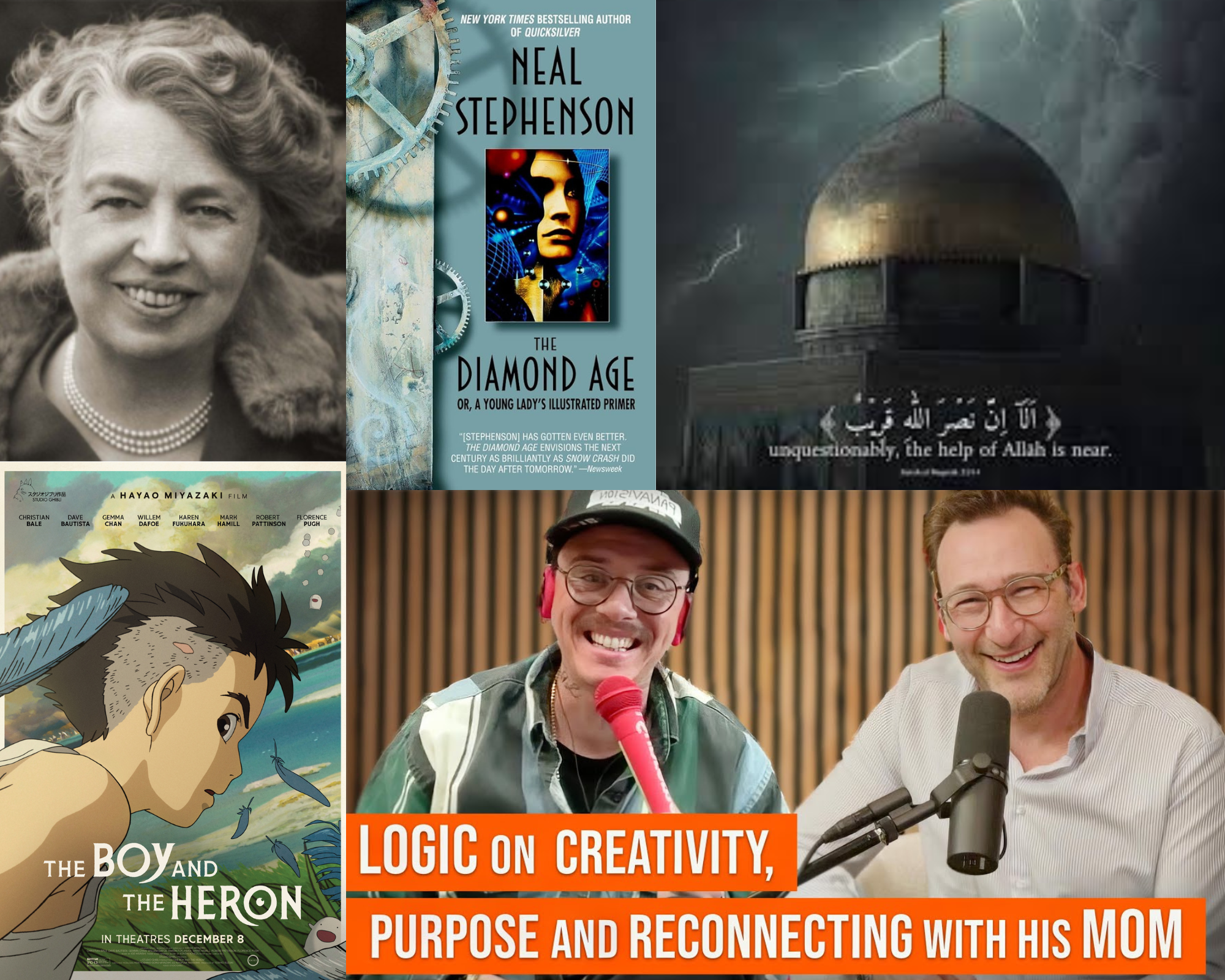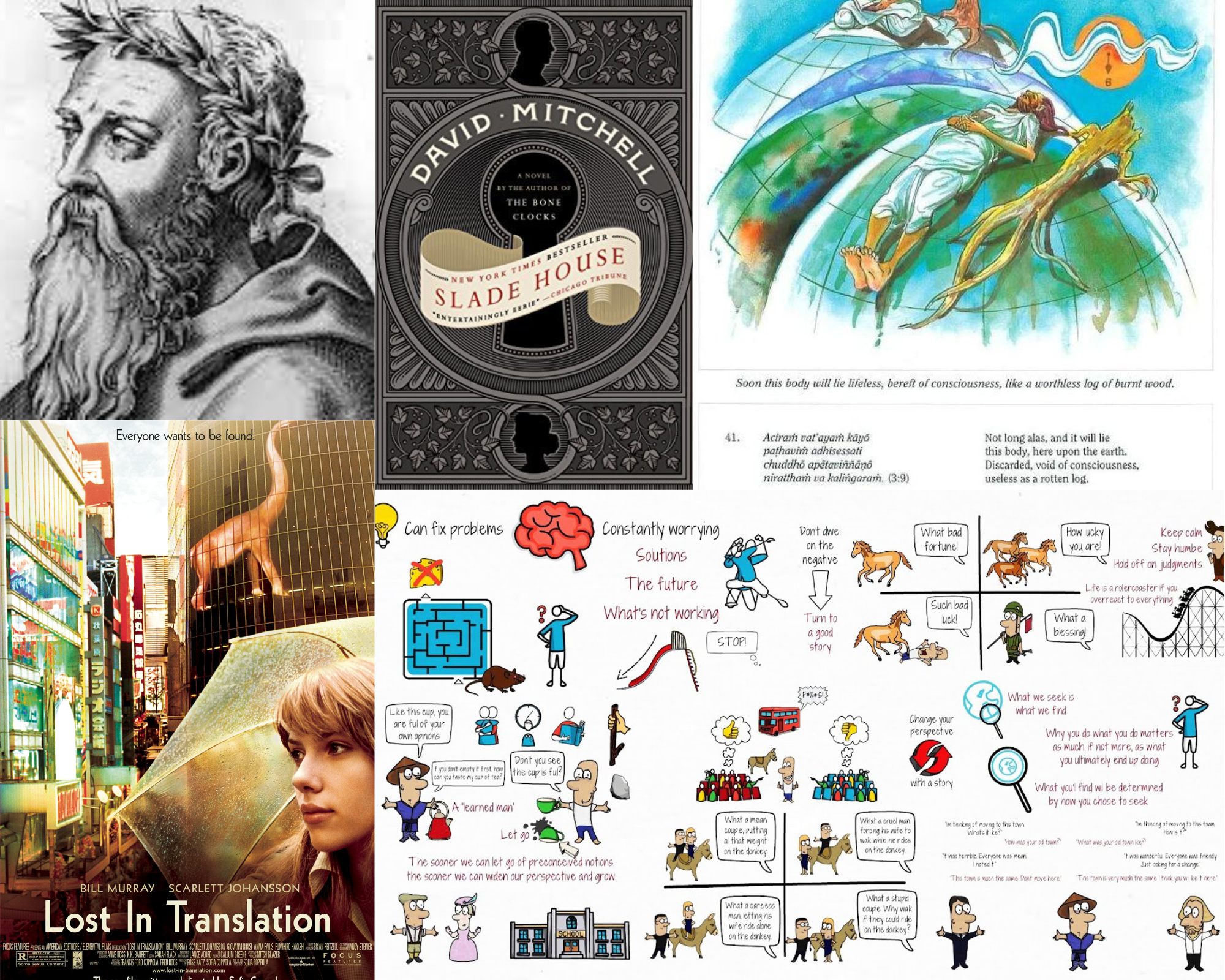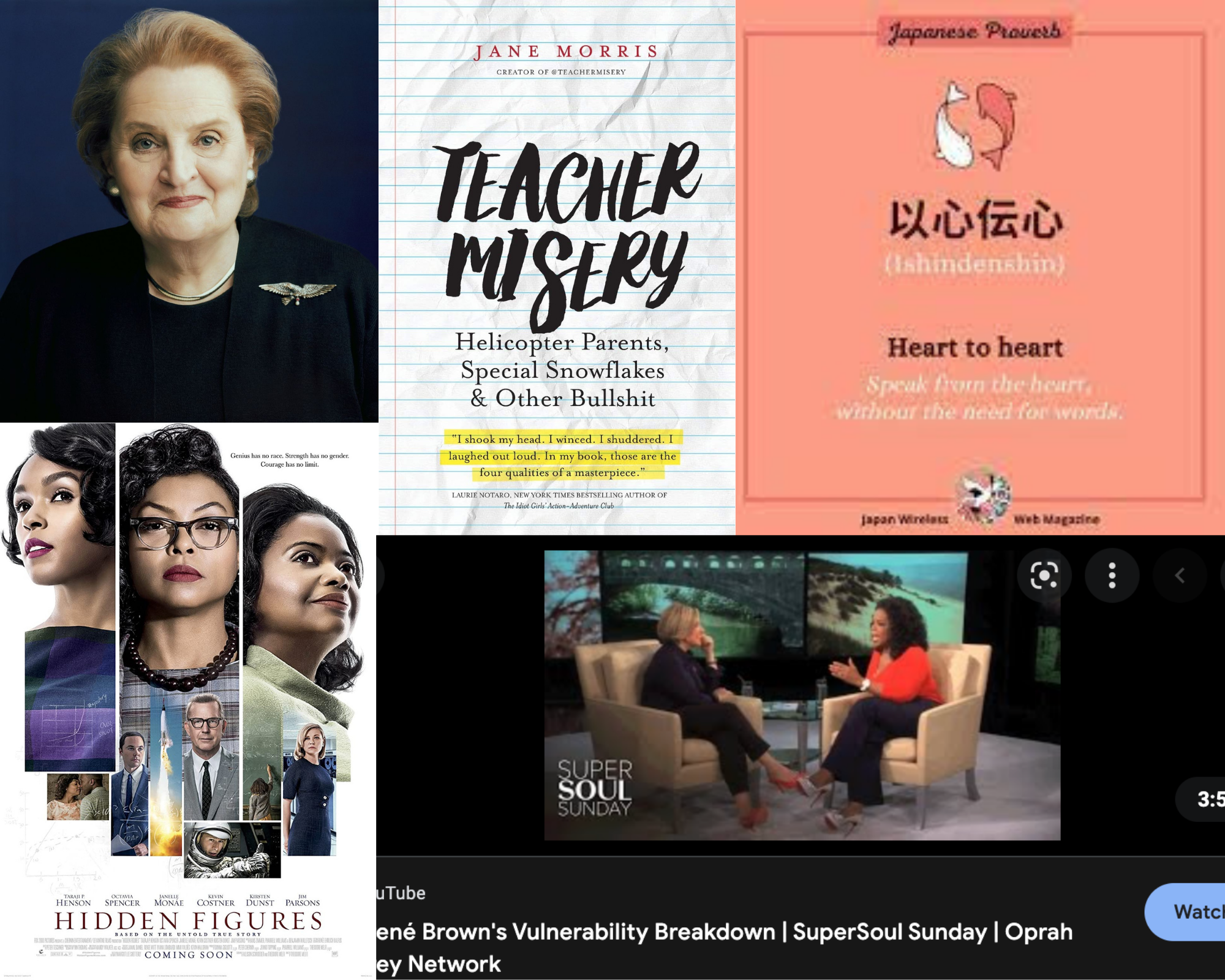Sunday Supplement #186 (December 1st, 2024)
Below is another Sunday Supplement with a quote worth sharing, a book worth reading, a movie worth watching, brainfood worth consuming, and a spiritual passage worth pondering.
Please take something away from these recommendations that enriches your week ahead!
Quote of the Week:
“People grow through experience if they meet life honestly and courageously. That is how character is built.”
– Eleanor Roosevelt
Book of the Week:
The Diamond Age – Neal Stephenson
I featured Neal Stephenson in one other previous Sunday Supplement. He is a Hugo, Locus, and Clarke-award-winning author whose works have been classified as Science Fiction and Cyberpunk.
The Diamond Age: Or, a Young Lady’s Illustrated Primer is a coming-of-age story about a girl named Nell set in a future where nanotechnology affects all areas of everyday life—the novel deals with themes of artificial intelligence, education, social class, ethnicity, and education.
I only recently read The Diamond Age, and I picked it up because I remembered Neal Stephenson’s work as a truly unique experience.
This novel won both the Hugo and Locus Awards for Best Novel and Best Science Fiction Novel, respectively, and it certainly delivered a unique experience.
Movie of the Week:
I’ve featured several Studio Ghibli films in previous Sunday Supplements. I continue to highlight the animation company’s work because it is of the highest quality.
The Boy and the Heron was director/writer Hayao Miyazaki’s latest film for the prestigious animation company.
The film is set during World War II in Japan and follows a headstrong boy who ventures into a dreamlike world shared by the living and the dead after the death of his mother and his father’s remarriage.
Check out the Studio Ghibli catalog and pick a movie from their list that calls to you. I believe their films are a special experience that you shouldn’t skip over.
Brainfood of the Week:
Confident Ignorance with Logic and Simon Sinek | A Bit of Optimism Podcast
Logic is a Grammy-nominated platinum-selling rapper, songwriter, New York Times bestselling author, and filmmaker.
Simon Sinek, who I have featured in several previous Sunday Supplements, is a bestselling author and speaker on leadership.
On this episode of Sinek’s A Bit of Optimism Podcast, the two discuss how confident ignorance allows you to acknowledge your deficiencies while creating the opportunity to learn and grow.
I only recently stumbled upon Sinek’s podcast, but I’ve found it to be worthwhile for those interested in listening to an hour-long conversation with leaders across various industries.
Closing Spiritual Passage:
“Do you think you will be admitted into Paradise without being tested like those before you? They were afflicted with suffering and adversity and were so shaken that even the Messenger and the believers with him cried out, “When will Allah’s help come?” Indeed, Allah’s help is [always] near.”
– Surah Al-Baqarah 214
This Quran passage prompts me to reflect on difficult times in my life when it seemed like there would be no relief in sight.
Everyone has their own difficult periods in life, and I believe that relief does eventually come in some way or form.
Navigating these difficult times isn’t easy, but I think the experience we gain from them can help us learn and grow and prepare us to face tough times in the future.
Reflect on your experiences, continue to move forward, and have a blessed week ahead!




